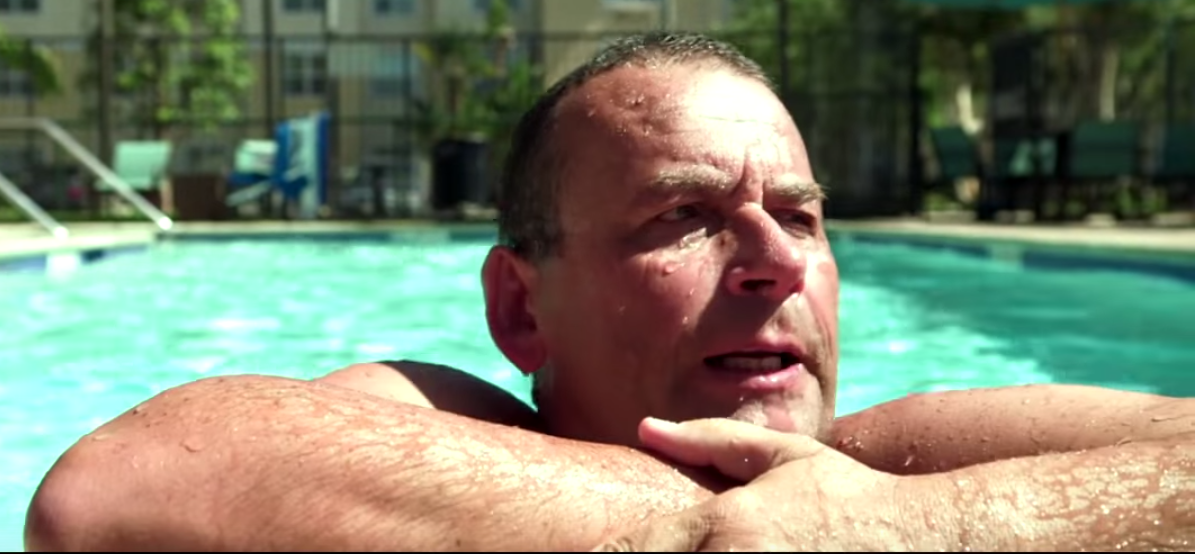
Earlier in the year I wrote about the parlous state of journalism, the emptying out of newsrooms, and the rise and rise of corporate communications departments.
Since then, Campbell Live has been replaced by (last time I looked) an innuendo-laced cooking show (juicy breasts!), Mihingarangi Forbes has quit Maori TV after management killed a story she had been working on, and Fairfax has laid off (albeit with plans to mostly lay back on) most of its editorial staff.
Call me Nostradamus. (You know… that sixteenth century French dude who may – or may not – have been able to predict the future.)
On the face of it, you’d think all that happening would have only increased my alarm and strengthened my belief that leaving journalism to the amateurs – people like me – is a more or less terrible thing.
But then I saw Paul Henry naked and it changed my mind.
He was sitting on a couch, perched next to a girl in a cheap Los Angeles hotel. The coffee table in front of him was strewn with empties and fast food wrappers. And OK, he might have had a towel around his waist, or maybe a robe. But there was more Paul Henry on display than many animals and small children might be comfortable with.
I saw all this on my TV, watching a movie he appeared in recently called The Desk. Despite my skills as an ad guy, I haven’t convinced many people to watch it. But you should. It’s very good and here’s why.
Its director and writer is a former New York Times journalist called Andrew Goldman. He’s Paul Henry’s biggest fan (or he was when they made the movie). And while the movie is ostensibly about Henry, it’s just as much about the state of mainstream media and professional journalism in the USA.
It’s not really spoiling the movie to reveal that Goldman’s career at the Times ended badly. His job was to write one feature interview per week. (I know! In America that’s an entire job with which you can pay a mortgage and feed your children!) Trouble was, while that one job was great for paying the bills, it came with conditions. Tweet something ironic or offensive about an author and you find yourself on the carpet in front of the editor. Ask a curly question to an interview subject who also happens to be a major advertiser and you find yourself on the pavement.
For Goldman, what he perceived as Paul Henry’s untrammeled freedom to say and do whatever he wanted seemed very appealing, and led him down the path that ended in making a movie featuring a barely clothed Paul Henry on a couch.
While the couch scene is the film’s enduring image, it’s Goldman’s story that caused me to rethink my position on amateur journalism. There he was in a dream job, being paid well to interview interesting people. But relying on that job and its regular pay cheque came with more constraints than freedoms. After a year of doing everything he could to avoid offending readers, he pissed off an advertiser and was out the door.
That can’t happen to an amateur. We don’t work here; we can’t be fired. Maybe, then, the amateurs aren’t just inevitable, but essential to the future of journalism.
Think of it as Superman in reverse. Rather than Clark Kent occasionally ducking into a phone booth to pull on his tights and save the world, the future of journalism lies in Superman popping on his geeky glasses and now and then doing a bit of writing. Sometimes there’ll be money in it; sometimes there won’t. It doesn’t matter when you’re Superman, right?

Illustration by Angela Keoghan
Not relying on journalism for a living can mean writing to change minds, even the world, without worrying about who you’re pissing off.
Yes, Superman will need to take his part-time journalism gig seriously; readers deserve the same ethical standards whether the writer is a professional or not. But that’s not an impossibly high hurdle. And even if it was, he could leap it in a single bound. ?
Vaughn Davis farms goats, flies aeroplanes, builds brands, hosts a radio show and tweets @vaughndavis. He once landed a big aeroplane on a sheet of floating ice in Antarctica but that was ages ago.




